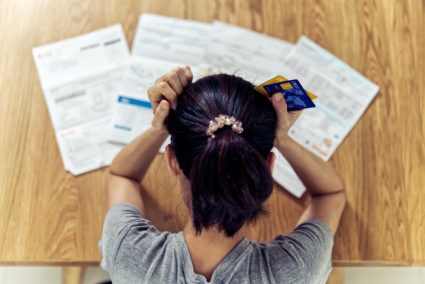Many individuals across the UK are grappling with increasing financial burdens and mounting debts. Nevertheless, it is vital to understand that all debt challenges can be resolved effectively over time with a well-structured plan of action. Achieving a debt-free status is a process that requires patience, but the sooner you begin exploring debt management solutions, the quicker you can address your financial concerns.
Engaging in conversations with your creditors about the possibility of establishing a debt management plan could be highly beneficial.
Understanding the Differences: Debt Management vs. Debt Consolidation
The concept of debt management focuses on assisting individuals in fulfilling their non-priority debt obligations in full through a single, smaller, and more manageable monthly payment. Providers of debt management plans play a critical role by negotiating with creditors on your behalf and ensuring that your debts are systematically cleared over time.
In contrast, debt consolidation loans offer a more immediate solution to multiple debts by allowing you to repay them at once. With only the repayment for the debt consolidation loan required each month, your previous debts are settled, potentially providing you with lower interest rates on loan repayments.
Defining What Constitutes Manageable Debt
A manageable debt refers to an amount that you can comfortably afford to repay during the agreed repayment period. If your debt payments exceed your financial capacity, they cease to be manageable, leading to increased stress and financial strain that can impede your overall financial health.
Assessing the Impact of Debt Management on Your Credit
Typically, with most debt management plans, repayments are made at a reduced rate, which can result in your credit report reflecting missed payments across various accounts. Consequently, this may adversely affect your credit score. However, it is important to remember that once the plan is completed, your debts will be marked as settled, paving the way for potential improvements in your credit rating over time.
Strategies for Effectively Managing Multiple Debts
If you’re finding it challenging to keep up with multiple debt payments, consider simplifying the process through debt consolidation. Utilizing a single loan can help settle various debts, making management significantly easier. Alternatively, engaging a DMP provider can facilitate arrangements with your creditors, allowing them to manage payments on your behalf, which can reduce the burden on you.
Key Steps for Effective Debt Management
To begin managing your debt effectively, start by calculating the total amounts owed and identifying your creditors. Next, draft a monthly budget that ensures all essential bills are paid first. The leftover disposable income can then be allocated to repaying your debts. If juggling multiple payments proves challenging, consider exploring options such as debt consolidation loans for a more streamlined approach.
Approaches to Handling Bad Debts
Debts that are particularly burdensome and negatively impact your financial stability are often classified as bad debts. To effectively manage these, prioritize repaying the debts with the highest interest rates first, as this will help to alleviate financial pressure and set you on a path toward becoming debt-free.
Exploring Debt Management Plans for Effective Debt Repayment
A debt management plan (DMP) is an effective tool designed to help individuals repay various debts, including credit cards, store cards, overdrafts, and unsecured personal loans. The DMP is facilitated by a DMP provider, who takes on the responsibility of managing payments to your creditors on your behalf, streamlining the repayment process.
In essence, a debt management plan involves agreeing to pay a predetermined amount each month over a specified duration, which allows you to systematically pay off your debts.
Several companies specialize in establishing debt management plans, discussing tailored solutions that cater to your circumstances and financial capabilities. This approach can provide a viable alternative to more drastic measures like legal action or bankruptcy, allowing you to regain control over your finances without undue stress.
The DMP takes into consideration your monthly affordability and is structured to ensure that you can repay the total amount owed within an agreed timeframe without reductions or write-offs.
Ideally, you should aim for an agreement that freezes all interest charges to prevent your balance from escalating. The objective is to consolidate all your debts into one manageable monthly payment, which the DMP provider will then distribute among the creditors who consented to the plan.
Understand That Not All Creditors Will Automatically Agree to a Debt Management Plan
Creditors are not legally obligated to accept this approach, though they often consider it a favorable option for recovering owed funds instead of resorting to a debt relief order or bankruptcy. It’s important to note that a DMP will typically only cover unsecured debts, excluding any debts secured against assets. Therefore, creditors may still pursue court action or collections if they reject your proposed plan.
While some debt management companies may charge a fee for creating a DMP, there are also organizations that offer these services without any cost. Conduct thorough research and reach out to organizations that provide free, independent advice before finalizing your DMP. If you qualify, these organizations may offer complimentary plans, potentially saving you money on repayment.
For many individuals, the convenience of making a single monthly payment can significantly improve their financial management and reduce stress.
The creditors participating in the plan may agree to freeze interest and other charges, minimizing any further correspondence such as calls or letters. Once the DMP is completed, all merged unsecured debts should be cleared, allowing you to focus on planning for a more financially stable future.
Recognizing the Potential Drawbacks of Debt Management Plans
It’s vital to understand that debts must be repaid in full and cannot simply be disregarded. There is no guarantee that creditors will agree to a DMP, and they could insist on immediate repayment instead.
If you require assistance with mortgage repayments, please note these cannot be included in the plan, as they are considered secure debts, necessitating alternative solutions.
Before establishing a debt management plan, ensure you have enough funds to cover basic living expenses. Verify that the company managing your DMP is licensed by the Office of Fair Trading, as this ensures transparency regarding costs, monthly payments, and the duration of your plan.
Additionally, inquire about the consequences of missing any monthly payments within the plan. Consulting with debt experts before committing to a DMP is crucial to determine if this route is the right choice for your situation.
Understanding Debt Consolidation Management Options
 Debt consolidation management programmes provide invaluable advice and support for individuals facing debt challenges.
Debt consolidation management programmes provide invaluable advice and support for individuals facing debt challenges.
Numerous debt consolidation management companies are available, offering guidance on debt reduction strategies and how to establish a sustainable budget. These organizations can include non-profit charities, building societies, banks, and dedicated debt consolidation firms.
If you find yourself overwhelmed by numerous bills and payments, the primary goal of a debt consolidation programme is to assist individuals in regaining control of their financial situation by creating a more manageable monthly payment plan.
For those struggling to meet their debt repayments, a debt consolidation management plan is specifically designed to facilitate negotiations with your creditors, resulting in a more affordable monthly payment structure.
How a Debt Management Plan Operates
With a DMP, you make a single monthly payment to the DMP provider, which is then allocated to your various creditors. Although this arrangement is informal, it’s important to note that creditors may still take action to pursue debt recovery. Ultimately, the aim is to repay all debts in full, with the repayment duration varying based on your monthly payment capacity.
The Role of the Debt Management Company in Negotiating a Payment Plan
The amount you can afford to pay largely dictates the terms of your debt consolidation management plan. Your total debt is consolidated into a single monthly payment, which is then distributed among all creditors involved.
Non-profit organizations, such as CCCS and the National Debtline, offer free services to help establish a debt management programme for individuals. Conversely, other companies may impose fees for their services.
One of the benefits of a debt consolidation programme is that, if it involves a loan, it often comes with a lower interest rate compared to your current debts, extending the repayment period and consequently reducing your monthly payment burden.
This option appeals to many because it may also lead to negotiations to freeze interest charges while the debt consolidation management plan is being arranged. This helps prevent additional interest from accruing during negotiations with creditors.
By consolidating your debts, you can manage your finances more effectively, making only one monthly payment towards the debt consolidation loan rather than juggling multiple payments for various bills. Please note that this programme is exclusive to unsecured debts and does not include any secured assets like a car or house.
Bear in mind that debtors are not obligated to agree to a debt consolidation plan, and they can continue pursuing payments and even resort to court actions to collect owed amounts.
However, many creditors are likely to consider proposals from debt consolidation companies since it is in their interest to recover funds rather than risk non-payment.
This process does not eliminate your debts but rather incorporates them into a more manageable debt consolidation management programme.
While it can help ease the pressure from debt collectors, it’s crucial to remain accountable for settling the full amount of all debts involved.
Always ensure that any company you engage with is licensed by the Office of Fair Trading and be clear about any upfront costs associated with setting up the debt management plan.
Eligibility for a debt consolidation management programme requires sufficient disposable income after covering living expenses. If your available funds are minimal, you may not qualify, making it advisable to consult professional advisors for alternative debt resolution strategies.
Evaluating the Benefits of Debt Management Programs
For individuals overwhelmed by unsecured debts, debt management programs can provide significant relief. However, if priority debts such as mortgage payments and utility bills are also a concern, you may find it challenging to have sufficient disposable income available to maintain regular debt management payments.
Is It Possible to Have Multiple Debt Management Plans?
While it is theoretically possible to set up two separate debt management plans, as there is no requirement to consolidate all debts into one plan, it is generally more straightforward to establish a single DMP with your chosen provider.
Can You Secure a Mortgage After Completing a Debt Management Plan?
While a DMP may have a negative effect on your credit rating during its duration, your score can begin to improve once the plan is completed and your debts are cleared. This improvement can open up the possibility of obtaining a mortgage.
Will a Debt Management Plan Prevent Bailiff Action?
If your debts are accounted for in your DMP, it is unlikely that creditors will continue employing bailiffs for collection. However, it is important to remember that DMPs are informal agreements, and missing payments could prompt creditors to initiate collection proceedings.
Do Debt Management Plans Appear on Your Credit File?
When you set up a DMP, creditors may flag your credit file to indicate that an arrangement is in place. This notation will be visible during any credit searches performed.
How to Exit a Debt Management Plan
There is no legal requirement to remain in a debt management plan. If you choose to cancel your DMP, contact your provider, who will notify your creditors that the agreement has ended. Subsequently, creditors will reach out to you to arrange the collection of any outstanding debts.
Exploring Debt Management Companies
The UK boasts a plethora of debt management companies, some offering free services while others charge fees. Generally, the most reputable providers are debt charities that do not charge for their services, including organizations like StepChange, National Debtline, and The Debt Advice Foundation.
Identifying Top-Rated Debt Management Companies
In our assessment, the leading debt management companies in the UK are:
- StepChange – Renowned for outstanding service, boasting a 99% customer satisfaction rating.
- National Debtline – Offers excellent service with a user-friendly online chat feature.
- PayPlan – Provides free debt management assistance and valuable advice.
- Debt Advice Foundation – A dedicated telephone advice service aimed at delivering essential debt information.
- The Money Advice Service – A government-funded, impartial service available free of charge.
Some debt management companies charge a fee for their services, meaning that a standard debt management plan from them could cost around £4,000.
Free advice on debt can be obtained from:
Money Advice Service: www.moneyadviceservice.org.uk
Citizens’ Advice Service: www.citizensadvice.org.uk
StepChange: www.stepchange.org
Money Advice Trust: www.moneyadvicetr




